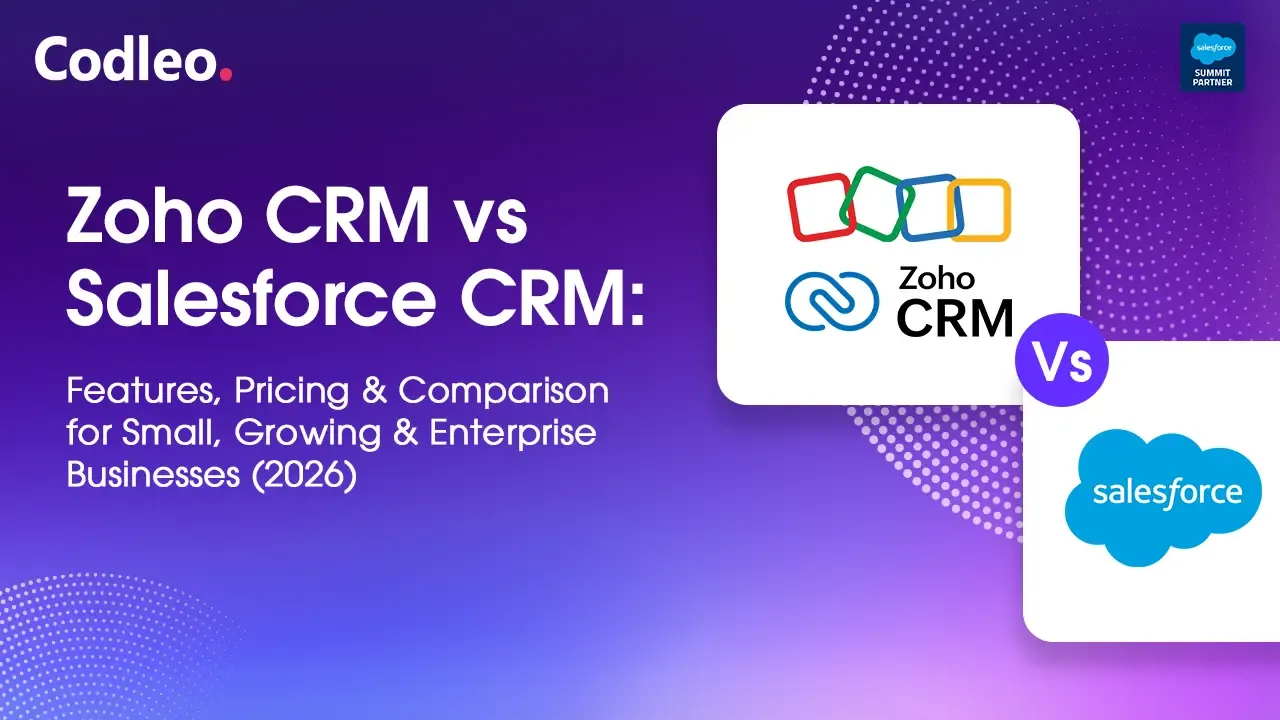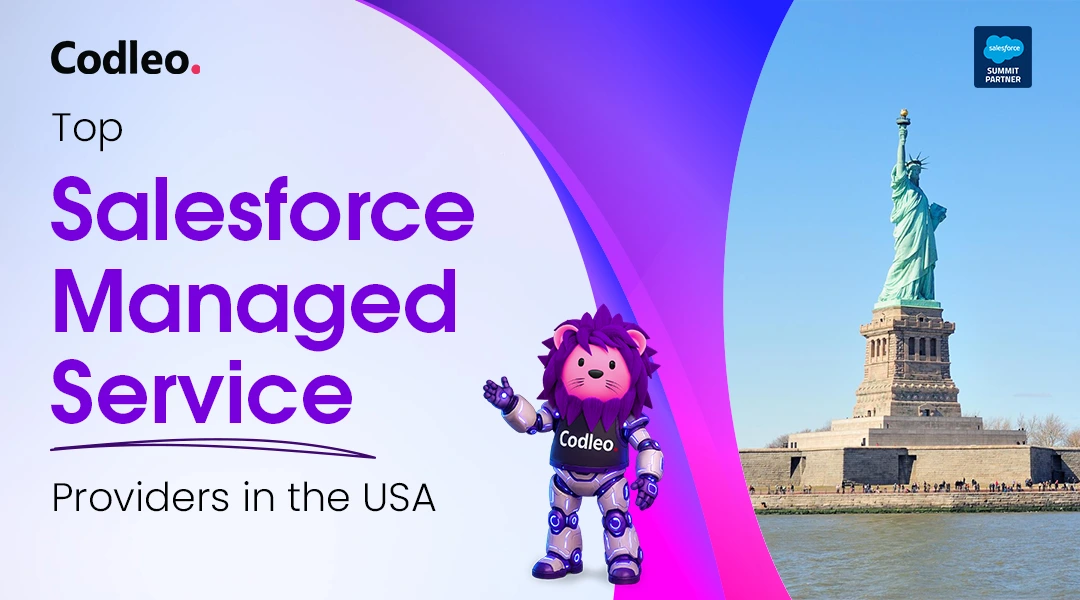Publish date:
In the ever-evolving landscape of customer relationship management (CRM), Salesforce Marketing Cloud (SFMC) is recognized as a formidable tool that empowers organizations to engage with their audiences in a deeply personalized and strategic manner. Essential for marketers at growth-focused companies, SFMC helps drive substantial returns on investment and stellar outcomes by adapting marketing tactics to the specific needs of consumers. With its widespread adoption, Salesforce Marketing Cloud serves over 100,000 businesses across various sectors, making it a preferred solution for marketing automation.
However, fully leveraging its capabilities can present hurdles, particularly in achieving smooth integration. In this blog post, we'll explore the frequent challenges that organizations encounter when integrating Salesforce Marketing Cloud CRM with their existing CRM systems, and we'll provide practical solutions to effectively address these issues.
Common Challenges Faced by Salesforce Marketing Cloud Users
Integrating Salesforce Marketing Cloud with existing CRM systems is crucial for businesses striving to achieve a unified perspective of their customer base. Such integration ensures a cohesive approach to customer engagement, enabling organizations to deliver tailored experiences across various channels. Nonetheless, this process is not without its challenges.
In this blog post, we will delve into the typical difficulties faced by organizations during Marketing Cloud integration, and we will also discuss corresponding strategies for overcoming these challenges.
1. Presence of Data Silos
A significant challenge in integrating Salesforce Marketing Cloud CRM is the presence of data silos. Disparate customer data and isolated data sources impede the creation of a unified customer profile, leading to inconsistent messaging and a fragmented customer experience.
Solution
To address this challenge, organizations should engage in thorough data cleansing and normalization processes. Establishing a strong data governance framework ensures data consistency, accuracy, and availability across different platforms. Additionally, leveraging the data integration features of Salesforce Marketing Cloud can facilitate the connection of various data sources, enhancing the efficiency of multi-channel marketing efforts.
2. Concerns of Data Security and Compliance
As data privacy and regulatory compliance gain importance, organizations face the complex task of securing customer information during integration. Ensuring secure data transfer and adherence to relevant regulations is crucial.
Solution
Engage a Salesforce-certified marketing cloud consultant who is well-versed in compliance and data security issues. These experts can manage access controls, implement encryption techniques, and ensure that data handling meets industry standards. Organizations must also stay updated on evolving compliance regulations to adjust their integration strategies effectively.
3. The Complexity of Customer Journey Mapping
Creating fluid customer journeys across the marketing and sales funnels requires a detailed grasp of customer behaviors and preferences. Integrating these journeys within Salesforce Marketing Cloud and aligning them with CRM data poses challenges, especially with multiple customer touchpoints involved.
Solution
Utilize the expertise of a Salesforce Marketing Cloud consultant who specializes in CRM integration. A certified consultant brings extensive experience in setting up complex customer journeys and synchronizing them with CRM data. Their expertise in refining these processes ensures consistent and personalized customer interactions across various channels.
4. Challenges in User Adoption
End users may initially resist transitioning to a new system, particularly one as robust as Salesforce Marketing Cloud. To unlock the full benefits of the integrated CRM system, it's critical to address issues related to user adoption.
Solution
Allocate resources to extensive training programs for end users and provide ongoing support. A Salesforce Marketing Cloud consultant can conduct tailored training workshops that meet the specific requirements of your organization, helping users become proficient and comfortable with the new system. Additionally, designing intuitive user interfaces and actively seeking user feedback can significantly enhance adoption rates.
5. Real-time Integration
Achieving real-time integration between CRM systems and Salesforce Marketing Cloud is a challenging yet crucial objective. Delays in data synchronization can lead to outdated customer information and missed opportunities for immediate engagement.
Solution
Utilize middleware solutions and tools designed to enable real-time data synchronization between Salesforce Marketing Cloud and CRM systems. Implement application programming interfaces (APIs) and integration platforms that ensure uninterrupted data flow. Regular monitoring and optimization of these integrations are essential to aligning them with the organization's changing requirements.
Conclusion
In the dynamic landscape of CRM integration, overcoming challenges reflects an organization's commitment and flexibility in delivering outstanding customer experiences. Tackling issues like data silos, user adoption hurdles, complexities in customer journey mapping, data security, and achieving real-time integration allows companies to harness the capabilities of Salesforce Marketing Cloud integration effectively.
For optimal results, businesses should hire a Salesforce-certified Marketing Cloud consultant. Such professionals bring specialized expertise, extensive experience, and a strategic approach to integration, ensuring the Marketing Cloud aligns well with organizational objectives. Additionally, for more complex and critical needs, consider outsourcing the maintenance and support of your marketing cloud to service providers specializing in managed services for the Salesforce marketing cloud.
As businesses continue to navigate the digital landscape, the integration of CRM systems with Salesforce Marketing Cloud remains a pivotal endeavor. By investing in quality resources, staying proactive, and leveraging the skills of experienced SFMC implementation services and certified consultants, businesses can transform challenges into stepping stones toward enhanced customer engagement and continued growth.
Ready to optimize your Salesforce Marketing Cloud integration? Connect with Codleo Consulting today to leverage our expert Salesforce-certified consultants and ensure your CRM operates seamlessly. Contact Us-Now















